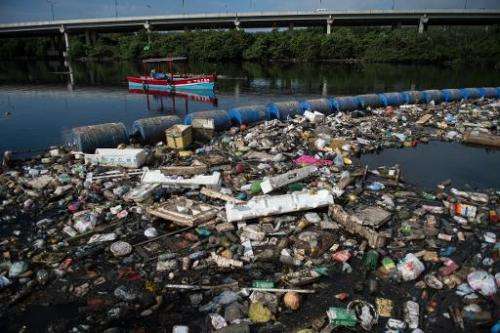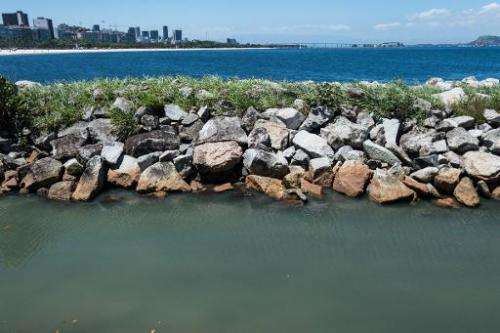No plan B on Rio sailing as Brazil chases pollution target

Rio Olympics organizers say sailing and windsurfing events will not be switched from Guanabara Bay, a picturesque vista marred by pollution, despite apparent disagreement on the extent to which the venue can be cleaned up in time.
Despite warnings from Rio state's new Environment Secretary, Andre Correa, that the city authorities could not guarantee to meet an official target of reducing pollution, Games' communications chief Mario Andrada told reporters the target stood.
"The (organizing) committee's position and the state government's target to treat 80 percent of the raw sewage remains," Andrada told a briefing at the Games' headquarters on Tuesday.
Last month, scientists from the Oswaldo Cruz Foundation research institute said they had discovered antibiotic-resistant super-bacteria thought to emanate from hospital waste, dealing a further blow to attempts to clean the zone before the first Games to be staged in Latin America.
Nearly 70 percent of Rio's waste winds up in Guanabara Bay.
Thousands of liters (gallons) of untreated dirty water are dumped every day in the bay, described by one leading biologist last year as a "toilet".
Detritus including dead animals, television sets, sofas and shoes have all been found in the waters, which authorities are scrambling to clean up while environmentalists warn of the potential risk to athletes' health.
Authorities concede they will only be able to clean up the bay by 80 percent and last year biologist Mario Moscatelli decried the fact that "all the city's rivers are used as sewers".

"Rio's bay is in no condition to receive the Olympics because nothing has been done," Moscatelli told AFP on that occasion.
Correa said last week that removing 80 percent of pollutants in the Bay "is not going to happen".
Andrada responded by saying that organizers were confident "80 percent of sewage running into the Bay" could be treated, as opposed to actually reducing by that amount the incoming pollution.
And he insisted "there is no plan B" for switching sailing or windsurfing to a different venue.
"Everything is progressing .. there won't be any televisions floating by in the sailing events."
He added that around half of Rio sewage is now treated - almost fives times as much as when Brazil stared putting together its bid in 2007, two years before the city won the right to stage the Games.
State authorities and Games organizers insist there is "no big risk"—in Correa's and Andrada's words—to athletes' health, despite only two of eight planned treatment units to filter pollution having been built to date.
But Correa did say last week that some 10 billion reais ($3.9 billion) of investment was required to bring sewage disposal up to standard in the Rio metropolitan area.
© 2015 AFP




















